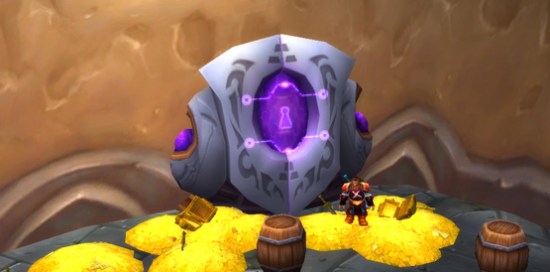Blizzard Wins $88 Million in Private Server Lawsuit
Back in October, Blizzard Entertainment filed a lawsuit against Alyson Reeves and her company Scapegaming, for violating the end user license agreement of World of Warcraft by setting up a private server for her own profit. On Thursday, the California Central District Court ruled in favor of the game maker and ordered Scapegaming to pay back “$3,053,339 of inappropriate profits, $63,600 of attorney’s fees, and $85,478,600 of statutory damages.”
What, you ask, is a private server, how do you make a profit off of it, and why is it against the EULA? Allow me to explain.
What is a private server?
A private server replicates Blizzard’s own server environment… but without using Blizzard’s servers. It can be set up using the files that you get when you install World of Warcraft. You set up your server, and other people can connect to it and play WoW, just like they were playing on official servers, albeit with certain utilities that depend on Blizzard’s server network unavailable. (Like anything related to Battle.net, the Armory, and the Dungeon Finder and Battleground Queues.)
World of Warcraft is not the only game you can do this with. Pretty much any game where all users connect to a game maker owned server, like MMORPGS, and some strategy games and first person shooters.
How do you make a profit off of it?
In the case of Alyson Reeves, who was doing her business under the name of Scapegaming, she included microtransactions in the game. For a “donation” people who played on her server could receive an item immediately, bypassing whatever grind was originally associated with obtaining it.
Why is it against the EULA?
You mean, aside from being a way to make profit with someone else’s IP and hard work? To quote WoW.com:
They’re shady as get out — some make you pay (and these are not people you’d ever want to give any credit card information to), some will delete or change characters on a regular basis, and many times they’re created just so whoever’s running them can mess around with [having omnipotent game master] powers, and cheat with any items they want.
The End User License Agreement, players should remember, is not like the Terms Of Service. The TOS simply governs how you are expected to behave in game, so that you do not get kicked out of game; to put it another way: the terms (behavioral rules) by which Blizzard agrees to give you a service (allowing you to partake of their regularly maintained gameworld). There’s nothing illegal about violating the TOS, but it will probably get you censured, or temporarily or permanently banned.
The EULA, however, is about how you are allowed to use the software that Blizzard licenses to you. To quote Wikipedia directly:
A software license agreement is a contract between the “licensor” and purchaser of the right to use software. The licence may define ways under which the copy can be used.
The TOS is specifically concerned with receiving service from Blizzard, while the EULA governs your right to use the software in the first place, for any purpose. Copyright, as Alyson Reeves has found out, is serious business.
Have a tip we should know? tips@themarysue.com
